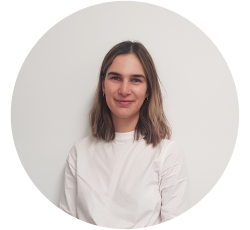Hear from one of the first graduates from the Master of Genetic Counselling program at UTS.

Image: Alex Green via Pexels
During her undergraduate degree, Claire Trumble discovered her passion for genetics – the study of DNA, genes and hereditary traits. She loved the science, but elsewhere in her life, she loved caring for people, too.
So, after graduation she started looking for a career path where she could apply her scientific expertise in a truly human way. Enter the Master of Genetic Counselling at UTS, a world-class qualification that prepares students to find their place in this rapidly expanding field of health care.
Genetic counselling is a booming field of allied health in which practitioners support individuals and families who carry, or who are suspected of carrying, pathogenic variants (mutations) in genes that may predispose them to disease.
“When I heard of the profession of genetic counselling, it seemed like a really perfect fit,” says Claire, one of the first graduates of the UTS master’s degree.
“It combines the personal side of connecting with and supporting people with the really interesting science side, so it was a really perfect marriage of the two.”
Research-informed learning
Today, Claire is an associate genetic counsellor at Liverpool Hospital in Sydney, a role she says was the direct result of the skills and experience she gained in her UTS degree.
The Master of Genetic Counselling curriculum combines coursework and research subjects with a range of professional placements, giving students the opportunity to connect their theoretical learning to hands-on clinical practice. Targeted research projects and professional placements enable skills development in specialist areas of practice, such as cardiac genetics or pre-natal counselling.

Claire Trumble
For Claire, that specialist area was familial cancer, which is the field in which she now works.
“I was doing a research project with the Peter MacCallum Cancer Centre in Melbourne as part of my degree, looking at the experiences of women with a gene change in what’s called the BRCA1 and BRCA2 genes,” she says.
“That’s what first got me interested in cancer genetics. I also worked as an intake officer and then did a placement at the Monash Familial Cancer Service, so I became a bit of an expert in that area.
“When a job came up at Liverpool Hospital’s cancer genetics service, I had the background I needed to apply.”
A rapidly expanding field
Claire is a clinical genetic counsellor, which means she works directly with clients with or at risk of familial pathogenic variants. She helps them to make informed decisions around whether or not to undergo genetic testing, manage and mitigate their genetic health risks, and communicate with other family members who may carry the same variant.
But, while clinical roles like Claire’s are common in genetic counselling, they’re far from the only career option for UTS grads. According to UTS Head of Genetic Counselling Associate Professor Alison McEwen, qualified genetic counselling professionals are now highly sought after in a range of laboratory, research and education positions as well.
“Genetic counsellors play a key role in the delivery of that aspect of health care, both to clients but also in multidisciplinary teams and in supporting other health professionals to maximise the benefits that genetic information can provide,” she says.
This surge in job opportunities is being driven by advances in science: new genetic and genomic technologies are increasingly demonstrating new opportunities for precision medicine and targeted therapies for people with specific pathogenic variants.
The result is a field of practice with almost limitless potential.
“We’ve now got the ability to access information that enables us to use precision medicine to prevent, diagnose or treat disease,” Associate Professor McEwen says.
“The more we know, the more places there are for genetic counsellors to work, supporting people as they understand and adapt to the implications of genetic contributions to specific health conditions.”
Learn more about studying Genetic Counselling at UTS.

